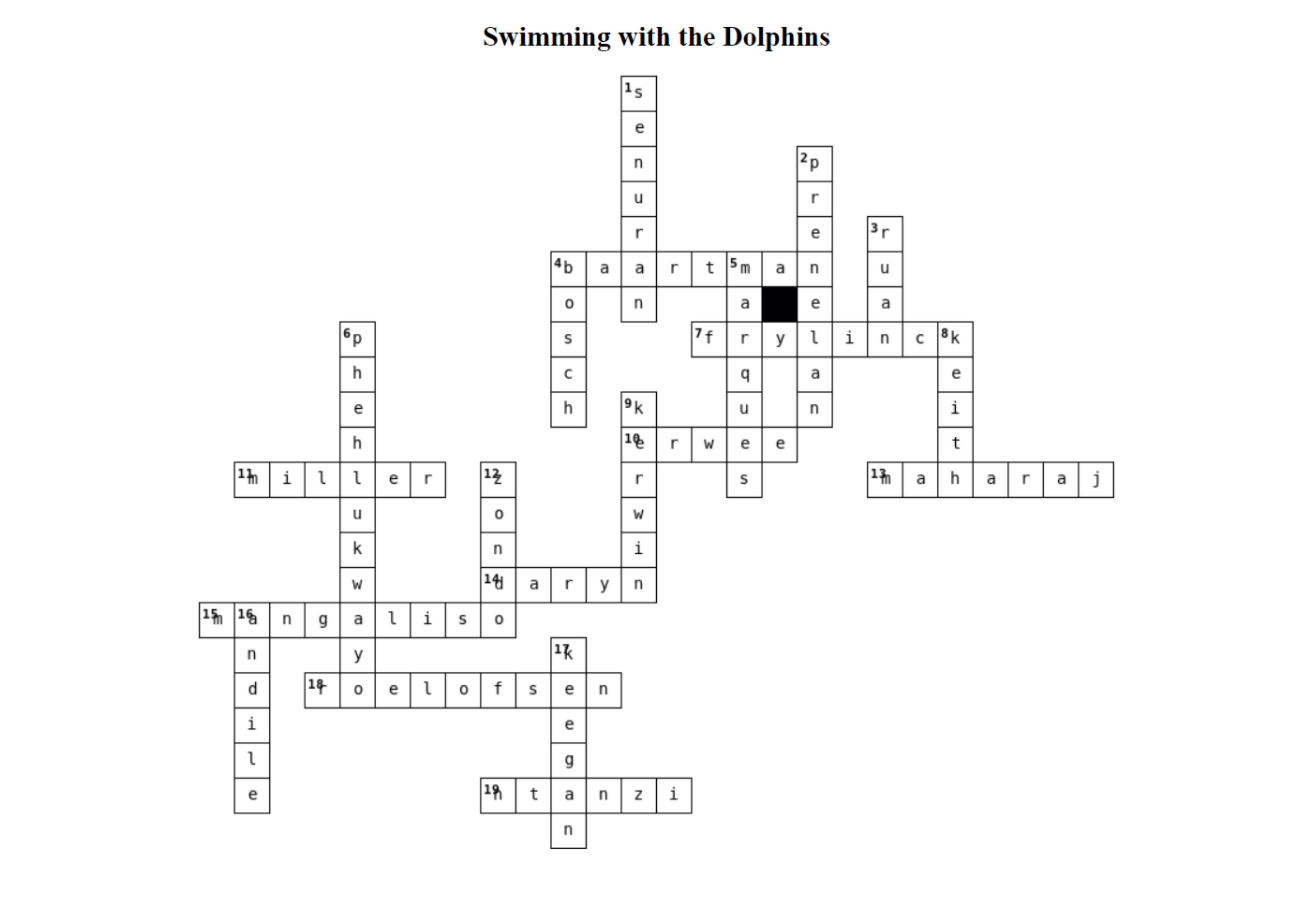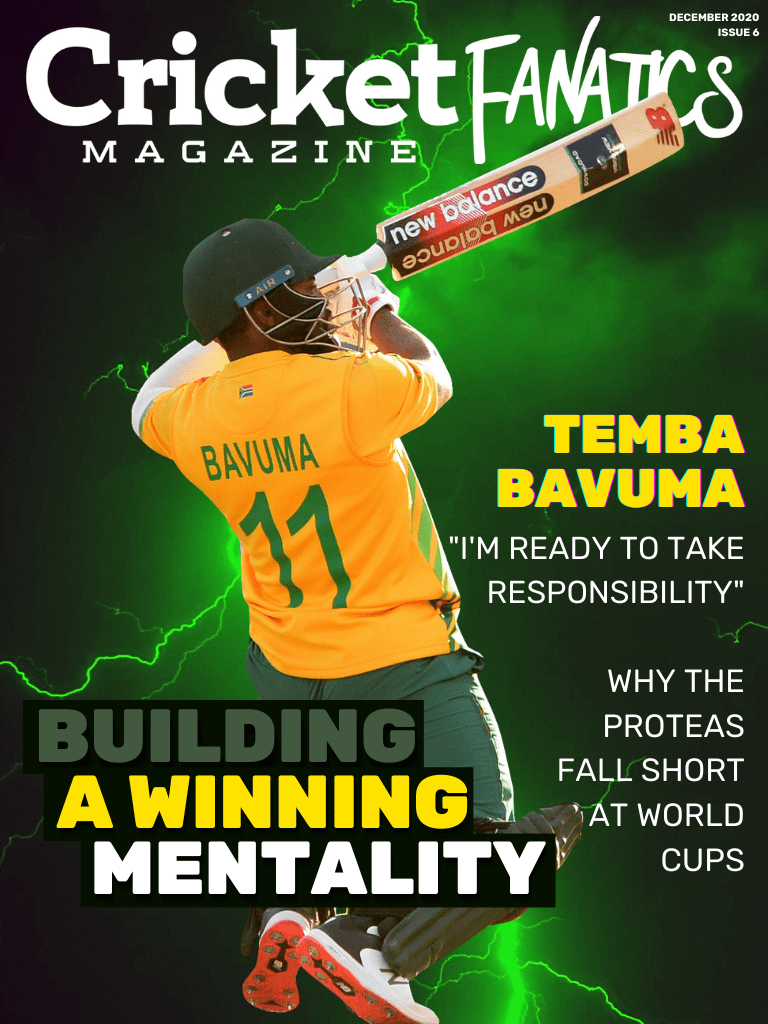
Table of Contents
EDITOR'S NOTE
Finding the right balance
Khalid Mohidin
Founder and Editor - Cricket Fanatics Magazine
In football, we often hear pundits and fans talk about the “brand of football” that teams play. We hear statements like: “We don’t care if we lose, as long as we play entertaining football.”
And when you look at successful teams in the last 20 years, they all played different styles during a dominant period.
The great Barcelona sides played a possessive-based “tiki-taka” football, while the great Manchester United teams played an attacking wing-based style.
The current Liverpool side plays a high pressing and fast-paced direct style of football, which has the World drooling at the opportunity to copy the “Jurgen Klopp way.”
Cricket is a different type of sport. It’s more about individuals, within a team dynamic. But what has become more clear when I go back into the archives, to see what dominant lineups looked like in the past, there seem to be parallels.
Teams who have players with natural-born attacking talent, tend to succeed.
This may be something the Proteas need to take note of during their rebuilding phase.
When Ottis Gibson came into the role as Proteas coach, there was a massive emphasis on the brand of cricket the Proteas played.
The players and the coaching staff were consistent in mentioning that the brand they aimed for was an “attacking brand”. I sat in all home press conferences thinking “at what cost?”
We saw Proteas players come out swinging instead of playing sensible cricket. Players, who don’t have a natural attacking flair in them, attempted to add urgency to their game and as a result, lost their wicket cheaply.
It was clear the Proteas’ attempt to enforce a style on the players they had, rather than attempting to pick players according to the style they aimed to play, was their downfall. They failed miserably, as our batting woes deepened.
When I asked Mark Boucher back in December 2019 about whether the Proteas will be attempting to play a certain “style” of cricket he said:
“With regards to style, I’m not here to reinvent the wheel. The players we select will have their own style of playing, and they need to work it out for themselves as well.
“We are here to add a lot of value, provide enough information as possible and create a nice environment for them to play and do their best. If we can do that we are heading in the right direction.”
We saw this being implemented in recent times, especially with the selection of Temba Bavuma who has naturally fitted into the anchor role at the top of the order in ODI and T20I cricket.
The evidence has been similarly there with the selection of Rassie van der Dussen, who seems to understand his game so well that he adapts according to the match situation.
Analyzing the way the Proteas play right now, there seems to be no set style. The players are given the freedom to think for themselves and adapt to the situation in the middle.
Now, it is up to the coaches to decide on picking the best squad with the correct mentality to produce performances consistently. They must find combinations of players that complement each other and bring the best out of each other.
With the Proteas Women side, they have decided to stick to a particular brand, as Dane van Niekerk has openly said during the pressers at the T20 World Cup. Before they played England she said: “We want to stay true to our brand of cricket.”
The ladies made it their mission not to focus on the opposition and rather to focus on their own strengths. They focused on picking a balanced side of players who know how to consolidate an innings as well as play an attacking role, with one or two sloggers sprinkled in between.
When it comes to modelling a team in World Cricket, we don’t need to look further than the 2019 World Cup champs.
They comfortably beat South Africa in the T20 series at the beginning of the year and in November.
Eoin Morgan in his pre-series presser at the beginning gave the ideal “style” which they would like to play and how star players – like Ben Stokes and Jos Butler – fit into that mould.
“They play their own way,” said Morgan.
“Within the framework of our game plan – which is playing positive, aggressive, smart cricket – I think leaves a lot of creative imagination and individuality for guys to play their own way and make their own decisions. Until that changes and doesn’t suit us, we sticking to that.”
Mark Boucher in his pre-series presser in November 2020 said that the Proteas also want to play "Aggressive, Smart Cricket".
But he also said that "if maybe their gameplans don't suit that style of play, we can start moving [them] in that direction, add a couple of shots to their game, if they batting, and add some different deliveries to some bowlers."
Instead of forcing players to change the way they approach the game to fit the brand they want to play, I believe they should pick players who already have that approach naturally.
I believe that picking players who are comfortable with their natural gameplan is the key to building a successful team. It’s also important to pick players who complement each other in pairs and can adapt to the match situation and conditions.
South Africa should identify the players they believe are their core unit, see how they fit into the brand, then fill in the gaps around them.
If it's players that have an attacking/positive mindset that we need, then that is what we should pick, not try to change the way players play just so that they can be in the side.
Whether they have played a game in green and gold or not, it's time they find the missing pieces to the puzzle.
That’s the main lesson that the Proteas should learn when selecting a unit for the World Cup.
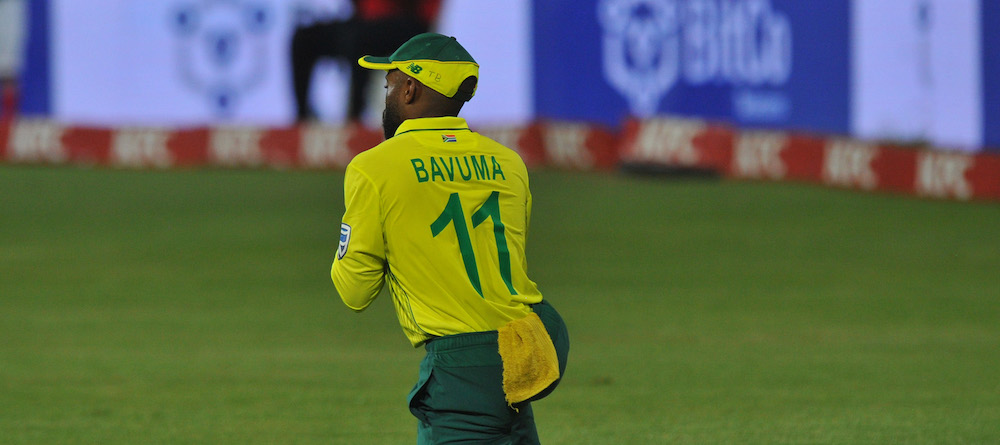
"I'm Ready to Take More Responsibility"
By Ongama Gcwabe
The time for talk is long gone, we need solutions and we need them now.
Temba Bavuma’s progress as a senior player could be the first step toward our return to glory. He is our ticket to building a winning mentality.
It has been well documented that the Proteas are in a rebuilding phase both from a management point of view and the squad point of view. The main focus, for now, is building a team out of the group of players that we have.
I find that the Proteas are in a similar position now as the Springboks Rugby team were before Siya Kolisi and Rassie Erasmus took over the Captaincy and Head Coach roles respectively.
The team has lost respect from the fans because of the inability to show fight in the recent past. The first goal is to regain the trust of the fans and to get the country behind the team once again.
For me, Temba Bavuma is a solution to most, if not all, of our problems.
Here’s why:
“I’m under no illusion that I’ve only scored one hundred and cricket is all about stats. But for me, I’ve never played for statistics.
"For me it is all about what I do for the team to win, making contributions at vital times," Bavuma said passionately to Cricket Fanatics Magazine.
"That’s why I can confidently say I’ve done very well for the Proteas because that’s what’s important to me, that’s what I play for, I play for the team.”
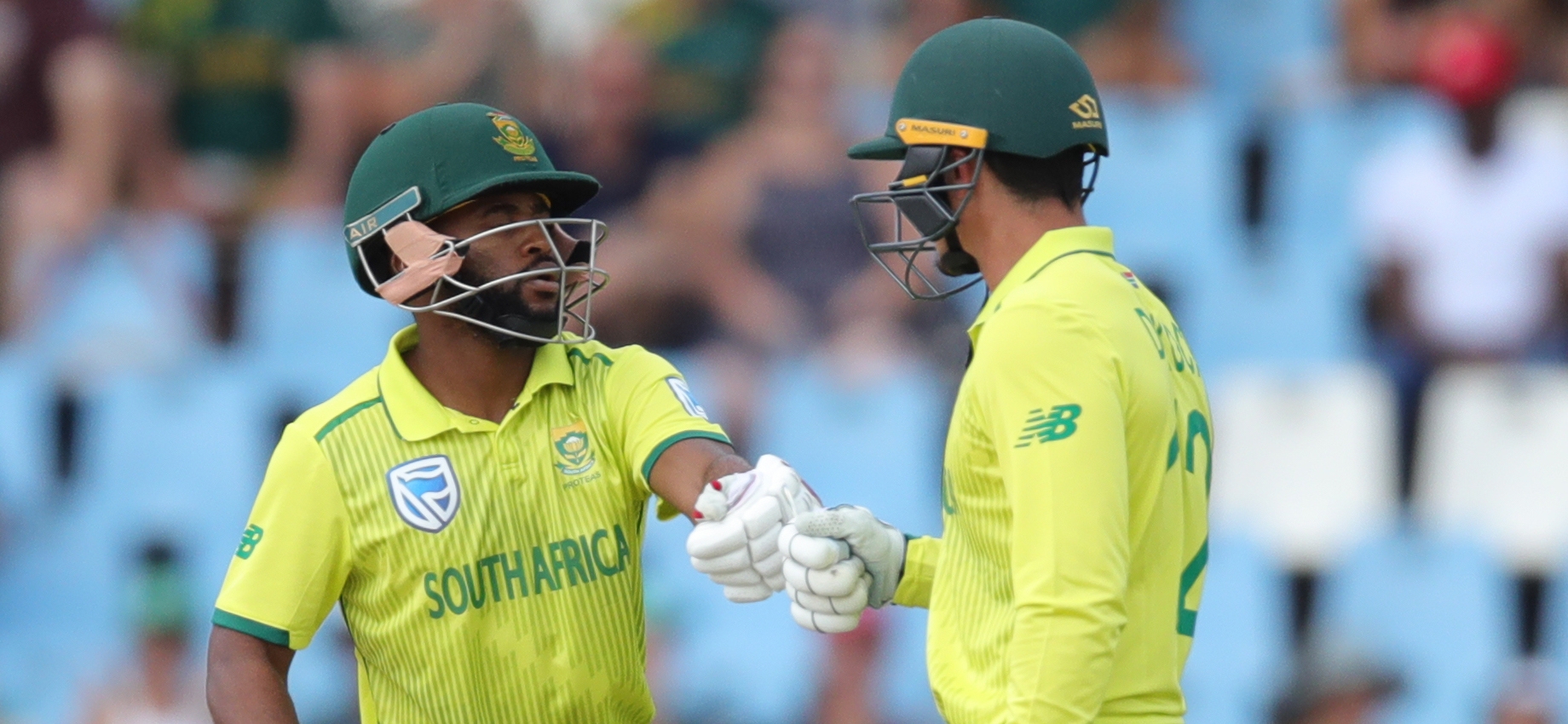
One word that sums up this statement is RESPONSIBILITY.
We are at a stage where we need our guys to take full ownership of their performances. It’s not only the captain that leads the side, all the senior players need to come to the party too.
Bavuma is one of the Proteas senior players who we need to see rise up to the occasion for the team to stand a chance to compete in next year’s T20I World Cup and beyond.
“I believe the respect I have from my teammates is derived from that. I mean, even at the Lions, I’m not the most decorated player in the team.
"But because I’m willing to do anything for the team it puts me in good stead and gives me respect amongst my teammates. That’s how I’ve always played my cricket,” said Bavuma.
“In saying that, the responsibility to statistically still be in good standing is still there and it’s not something I’m running away from. Also, it will be nice for me to have a lot of hundreds.”
It’s clear that the man from Kwa Langa has the team’s best interests at heart even ahead of his own personal interests.
This quality is one which is very important for any team but makes it a little more crucial for the Proteas purely because of the stage they are in their development.
Temba comes from very humble beginnings. Like myself, the fact that we know what it feels like to be at the very bottom of the food chain in the townships, we tend to be hungrier and more driven than the average person.

It’s the experience of growing up with very little that makes us more determined and more appreciative of the opportunities that we have.
“Life in the township is quite a unique one. A unique one in the sense that it has its challenges, including social ills.
"But with all that, the community I grew up in there was still space for us to focus in our sport, in our passions and it was all supported,” explained Bavuma.
“I moved out of Kwa Langa when I was about 13 years old and I remember growing up there, there were guys who were equally talented as me but I guess on my side - because I was able to kind of escape out of that environment – I guess I was able to pursue and fulfil my potentials.
“Whenever I meet the friends I had growing up it’s always a reminder of how things could’ve possibly been for me had I not received the opportunities I got.
"It puts things into perspective in terms of life. Sometimes you can work hard but if the resources and opportunities are not there then things won’t happen as you’d like.”
Our biggest problem is that we succumb to pressure more often than not. Recently, there haven’t been many occasions where senior players rise-up to the occasion and take responsibility to steer the team in the right direction.
“I think I’ve never been someone who shies away from challenges or pressure.
"I always want to be honest with myself, I believe that you have to take responsibility for your actions and not run away from them," Bavuma admitted.
"I have learned that you have to man up. You can’t run away from your problems.
“I’m scared to be seen as a failure. So, I think giving up is not something I believe in.
"Even if I make mistakes, I will come back and try to rectify my mistakes. Giving up is not there in my head, it’s not an option for me.”
The T20I World Cup is scheduled for October 2021, the team needs someone who understands where they are in their career to assist Quinton de Kock in leading the team.
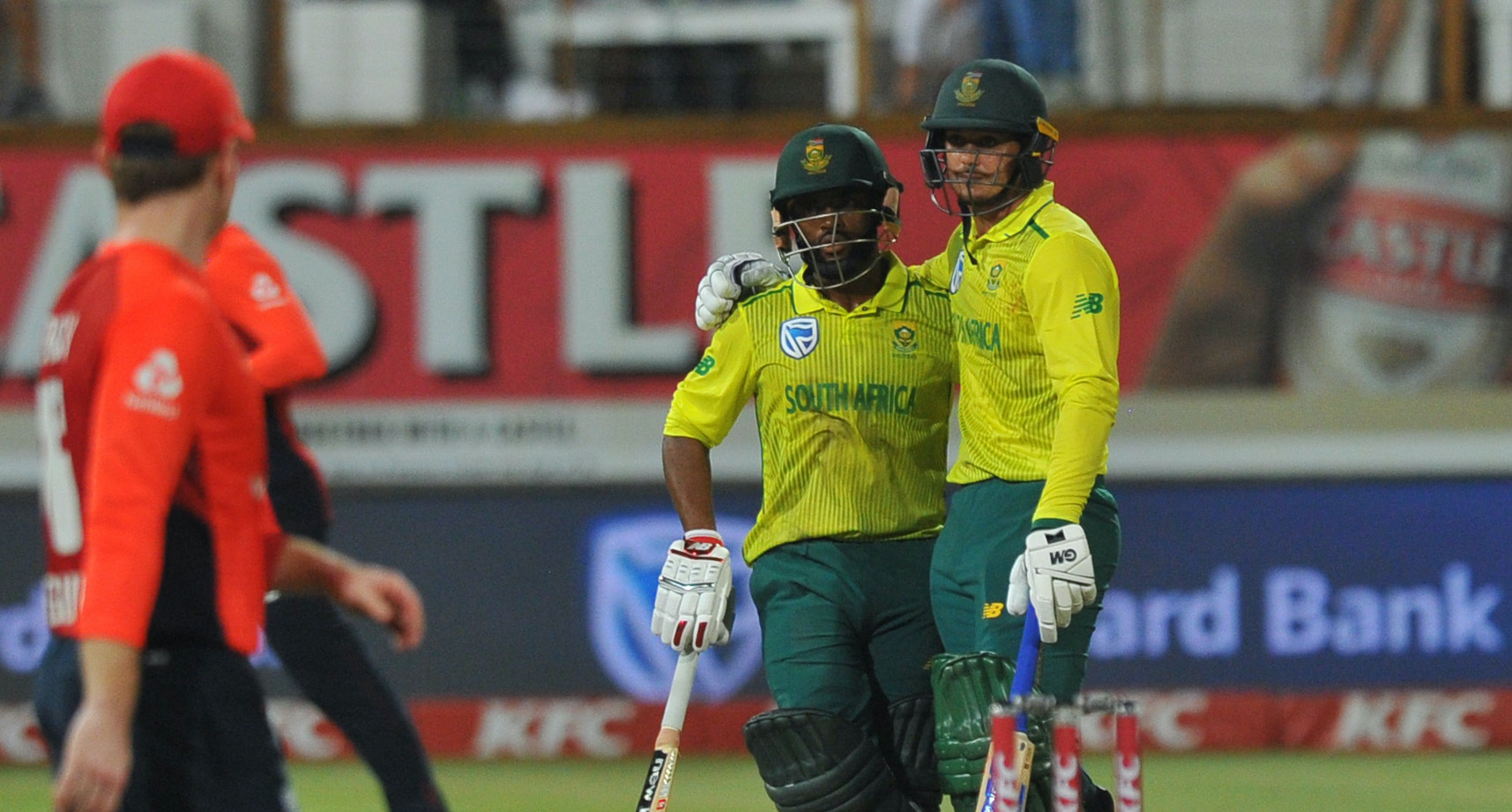
As the Proteas look to build a winning mentality, Bavuma will certainly play an important role in making this a reality.
“I believe I’m where I need to be. I think I’ve moved away from the habit of creating pictures in my mind of where I want to be in 2 years.
"I’m more focused on the now. I’m trying to win this moment, the now. I’m focused on whatever challenge I’m faced with at this very moment," he said confidently.
“We are a young team. There is a change in guard from the management side and also from the senior players' side. Now there’s an opportunity for someone like me to lead the team.
“The team is in a fragile position in that we’re looking for people to kind of steer the ship in the right direction. Even from a skill point of view, we need people to stand up and become world-class players to contend with the other world-class players.
“You look at Australia, they were in trouble not so long ago. The likes of David Warner and Steve Smith are keeping the team afloat.
"Also, the likes of Pat Cummins have risen to the occasion and they’re taking responsibility. I think that’s where our team is going, that’s what our team needs while we’re still building and growing as a team."
Bavuma is ready to take responsibility for his performances. He has made it clear that he aims to play a vital role as the Proteas strive to build a winning team, culture and mentality.
No matter how tough, or rocky the journey might be, he will give his all as the Proteas hunt for their first taste of World Cup glory.
Get More Clients With Cricket Fanatics Magazine
Cricket Fanatics Magazine has the visibility, infrastructure, expertise and toolset to automate your marketing and branding.
Business Case Studies Wanted...
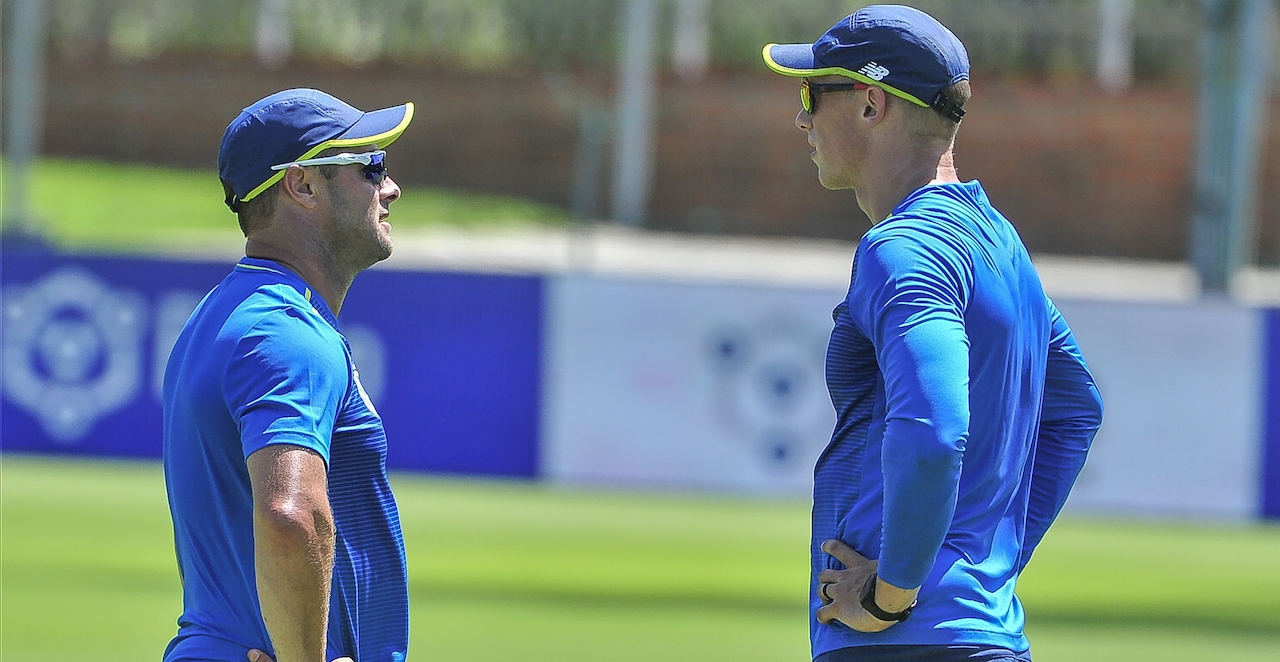
Mindset and Culture: Building a Winning Mentality
By Chris Chiwanza
In October 2021, the Proteas will participate in the T20 World Cup tournament. And if they are to have a reasonable shot at winning the title, they will need a certain mindset. They will need to participate as great competitors and not just cricketers.
They will need to embody the Protea Fire, a fire that burns with resilience even in the most difficult circumstances. They will need a mindset that they’re always going to succeed, that they’ve got something to prove.
They’re going to have to be resilient, and not allow setbacks to hold them back. They’re going to have to develop an attitude that they are not going to be deterred by challenges posed by conditions and opposition strength.
They will need to have grit. According to Angela Duckworth a preeminent psychologist, researcher and author, grit is about perseverance. To persevere means to stick with it; to continue working hard even after experiencing difficulty or failure.
According to Duckworth, research indicates that the ability to be gritty — to stick with things that are important to you and bounce back from failure — is an essential component of success independent of and beyond what talent contributes.
"Being naturally smart and talented are great, but to truly do well and thrive, we need the ability to persevere. Without grit, talent may be nothing more than unmet potential. It is only with effort that talent becomes a skill that leads to success," said Duckworth.
However, for the team to successfully adopt this mindset, they need what psychologists call a growth mindset.
Growth mindset is a way of thinking where people believe that their most basic abilities can be developed through dedication and hard work.
A way of thinking espoused by people who believe that talent is just the starting point. These people have a love of learning and a resilience that is essential for great accomplishment.
The opposite of growth-mindset is fixed-mindset. Fixed-mindset is a way of thinking where people see their qualities as fixed traits that cannot change.
Players with a fixed mindset often believe that talent is enough to lead to success and effort to improve these talents isn’t required. They think that one is born with a certain amount of skill, and that can’t be improved upon. Players with this mindset often crumble under pressure because they lack resilience.
A growth-mindset seems to be what Victor Mpitsang, the convenor of selectors, is also looking at, in addition to numbers, when identifying players for the Proteas. Mpitsang mentioned that it just doesn't boil down to numbers.
"Selection is a team effort, and I am a part of that team," Mpitsang revealed. "It is about identifying players that suite the philosophy and style of the coaches. Understand the brand the coach wants.
"And we select those players. Where we cannot find the exact fit, we pick players with the potential to be developed into what the coaches need. That's why we have things like the High-Performance centre in place, for player development."
Mark Boucher seems to be on the same page. What matters, appears to be how players respond to pressure and testing moments, and not whether they have the best numbers.
In one interview before the T20 series against England, Boucher shared that he had no set eleven for his squad, and it was up to the players to prove themselves by successfully adopting their desired culture.
The importance of a team adopting and living the right culture cannot be overstated. After all, the culture with which a team identifies with powerfully shapes just about every aspect of it's being.
How they interact with others off the field is just as important as how they interact on the field. A team's culture informs how they view themselves.
For instance, the Finnish people consider themselves to be people who do not give up easily and will always fight with a will to win. They see themselves as people with sisu – the ability to keep fighting after most people would have quit. For the Finns, their spirit, their culture, is defined by sisu.
This is not too different from the idea of Protea Fire, all it required was the right culture. Teams with higher levels of belonging, empathy and respect are fertile ground for the development of the right mindset.
A culture that values these three things promotes inclusive behaviours and confidence, which makes it easy for one to embrace a growth mindset. And, according to the reports that emerged from the Skukuza culture camp, these are the new values that create the pillars of the Proteas' culture.
"At Skukuza, we dealt with the human element, which was so powerful, and we were able to come out with a strong base, a strong foundation," Enoch Nkwe revealed in an interview.
One thing Boucher has often repeated during press conferences since the Proteas returned to action, in November 2020, is that the players and the new culture will be tested, but the key to everything will be what lessons they take from each match.
Take what he said when South Africa lost their first T20 match to England as an example, "We understand that this is a long journey, this is not a short journey, we'll keep learning.
"We are getting tested against a very good team, and that's how we want to get tested, as well. If it's going to expose a few weaknesses we have got, then that's a good thing, I think. That's stuff for work on, to improve on."
There are going to be those that will rise above the rest and show that they belong in the T20 squad that will take part at the World Cup.
Boucher is currently rebuilding the squad, and the reference point appears to be the Skukuza camp held in August 2020.
At the "culture camp", the Proteas defined what it means to be a Proteas player, not a cricketer. They defined the Proteas culture. And while the first step in identifying and setting the guidelines for a culture that they hope will help them to be strong competitors at Skukuza, it's implementation and execution will depend on the team's mindset. And this will depend on whether the players have a growth mindset or a fixed mindset.
A growth mindset is not a foreign quality to the Proteas' coaching department. Throughout his years as a player and in coaching, Mark Boucher has shown himself to be a man who has both perseverance and resilience.
The question now will be, will the Proteas adopt the same growth mindset and set themselves on a path to a winning mentality?
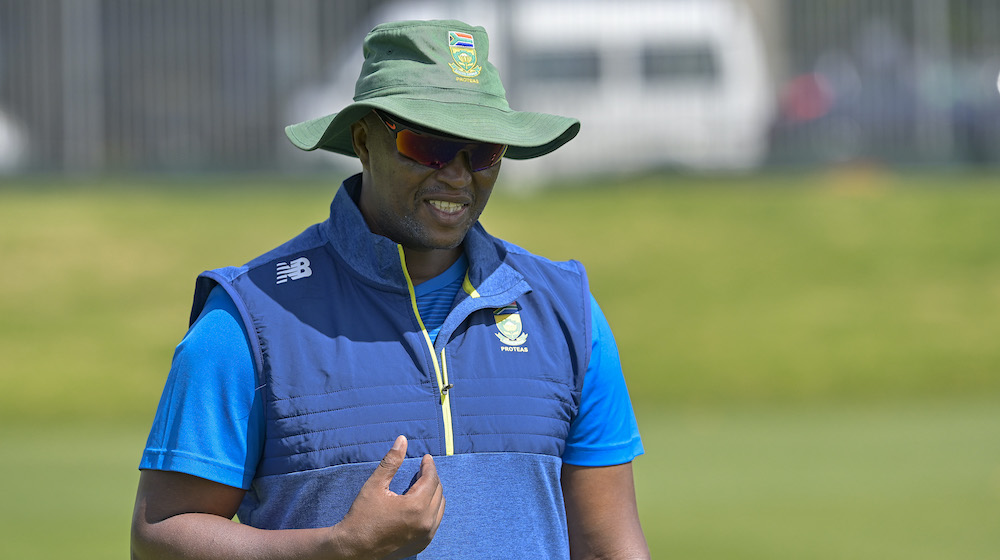
"SA women’s cricket moving in the right direction"
By Marc Jacobson
With the 2022 ODI and 2023 T20 World Cups on the horizon, South African women’s cricket is currently in a positive and healthy space, according to long-serving head coach Hilton Moreeng.
Moreeng, who has taken the reigns of the national side since 2012, was re-appointed in July this year and will remain the head coach for at least another three years.
The former professional cricketer had been at the pinnacle of the growth of the women’s game in South Africa over the last several years.
He has coached the national side at two major tournaments during his reign, the 2013 World Cup and 2014 T20 World Cup, and he is optimistic that women’s cricket has by no means hit any crossroads.
“I can confidently say that we are moving in the right direction,” Moreeng told Cricket Fanatics Magazine.
“I think the biggest thing for us is to catch up with the top three or four teams in world cricket,” he said, adding that Cricket South Africa’s recent appointment of Dinesha Devnarain as the high-performance coach should put them in good stead.
One of the priorities is to improve the systems within women’s provincial cricket, the second-highest level of the game and the main feeding ground for the national side.
“Hopefully in the near future, we can get that [provincial cricket] into a professional set-up because currently we only have 14 contracted players in the country.
“Our vision as a country is to get ourselves into the top-three of the world so a lot of plans have been happening during Covid-19 and a lot of preparation has been done. We are currently busy with our fourth camp as a team.”
As far as top-class cricket is concerned, Moreeng was proud to state that 10 of their contracted players have been playing in professional leagues overseas - eight in the Big Bash and two in the IPL.
“It shows our progress if we started with two players and now we have 10. Their performances are being recognized.
“We’re happy with the strides that have been made, but we realise there’s still a lot of work to be done.”
In terms of developing domestic cricket, Moreeng, who plied his trade for Free State between 2001 and 2007, prioritises the grass-roots and under-16 levels of the game.
“Those will feed our under-19 teams heading to the World Cups in the future. Our pipeline has been established and we’ve improved on that.
“What also helps is that our coaches at provincial level are getting contracts and are becoming permanent employees.
“This helps in terms of their commitment to getting players and seeing them on a regular basis,” he said, adding that “a lot of work gets done” in terms of skills development in the players’ respective provincial outfits.
“Over the next season or two, we want to see whether we can professionalize the system while retaining players so that they can push for places.”
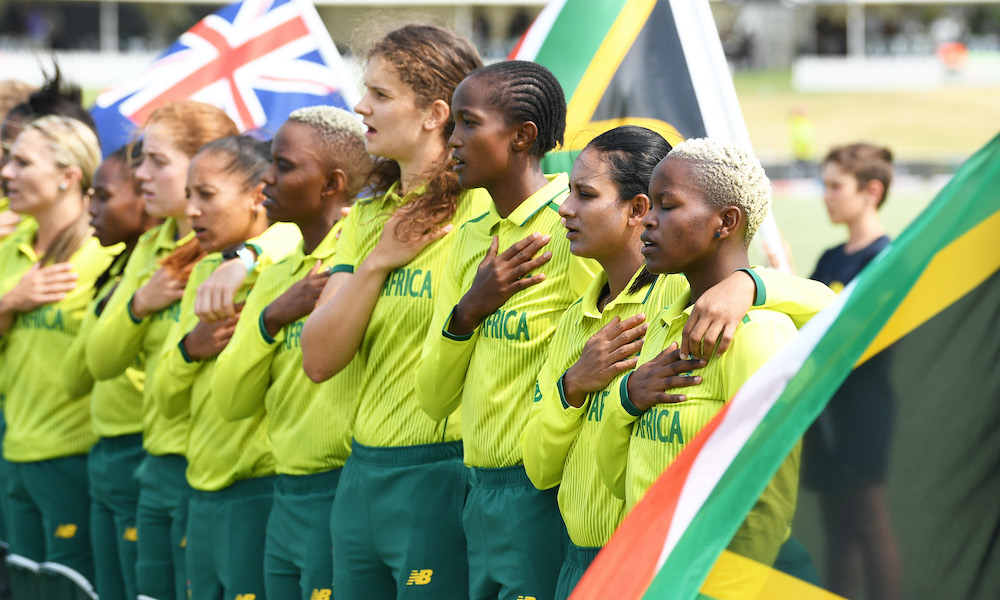
The governing body has also made some headway in terms of developing girls’ cricket in the schools around the country, Moreeng said.
He said they can learn from the men’s system and that ongoing discussions have been conducted with the schools’ committees to enhance the junior structures of girls’ cricket.
“We need to encourage each and every province to have school leagues going for the girls.
“It’s going to be a lot of hard work but if we want to be competitive in world cricket we need to get the ball rolling as soon as possible.”
Moreeng described the situation of various players playing professionally overseas as a win-win scenario.
On the one side, they can learn from the best and gain international experience and on the other side of the coin, they can become local ambassadors and help to hone the skills of younger cricketers coming through the system.
In terms of his coaching philosophy, Moreeng said he tries to keep it simple while trying to get the best out of the players he oversees.
“The quicker we can get the players to become independent from coaches, the better it’ll become for us because then they can make better decisions in the middle and think on their feet to give us opportunities to win.
“We need to make sure we create that winning mentality,” he said, citing how close the Proteas came at last year’s World Cup as a reference point.
The Proteas topped their group and beat England in the process before progressing to the semi-finals and losing narrowly to champions Australia by the DLS method.
This was already an important juncture in the progression of the women’s game in SA, according to Moreeng.
Covid-19-permitting, Moreeng expects the national side to play again in an incoming series against a “couple of pencilled-in oppositions” in January.
Advertisement
Ezra Poole's Online Wicketkeeping Academy
Learn how to Master The Craft of Wicketkeeping Without Having to Hire a Full-Time Personal Coach.
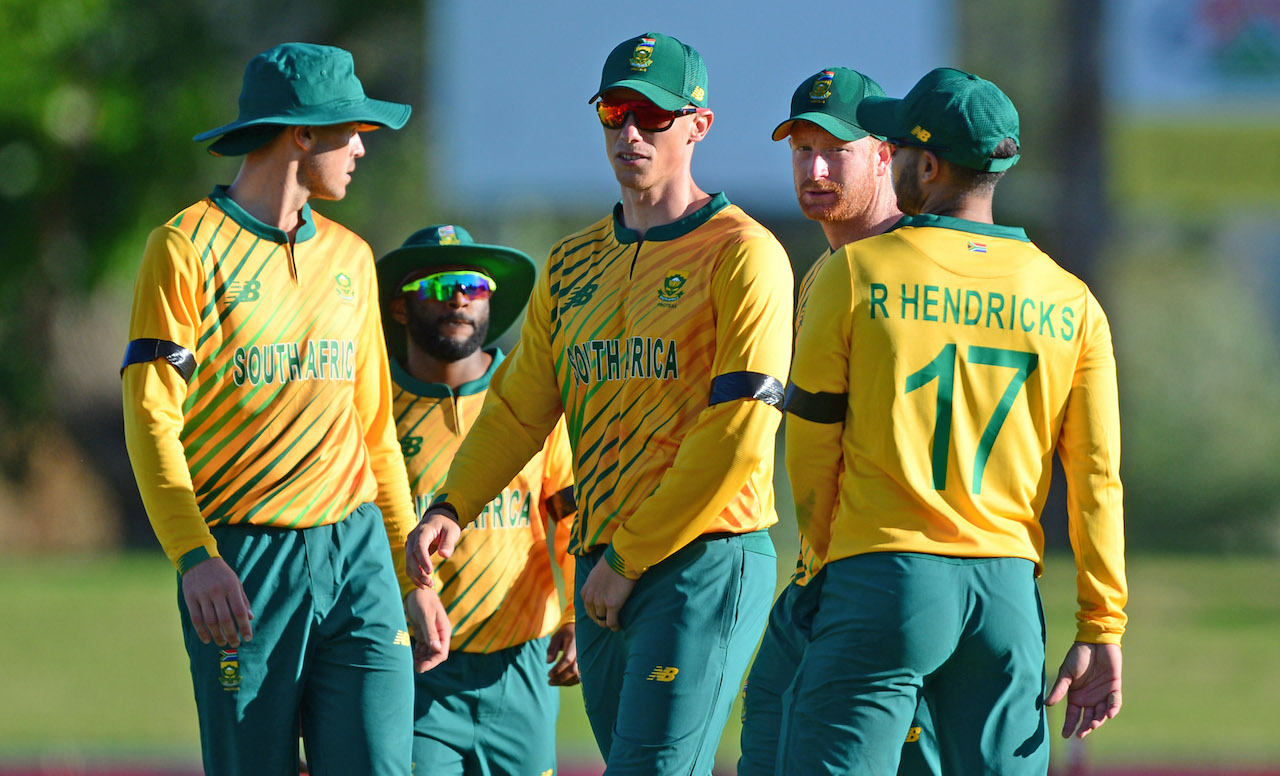
Why The Proteas Fall Short At World Cups,
An Outsider’s Observations
By Aditya Mehta
Why has South Africa never won an ICC title?
Why do South African cricket teams underperform at World Cups?
Does the pressure get to the players?
These are some of many questions asked, often in exasperation, by stakeholders in South African cricket before and after ICC tournaments.
In response, current cricketers, former cricketers, pundits, and the media cite a wide variety of reasons – the team was too conservative in its approach, they failed to clinch key moments in big games, or the team was plain unlucky – to explain the Proteas’ performances in World Cups.
While cricket experts have dissected the Proteas’ on-field execution, this article attempts to examine two underlying factors obstructing the team’s path to an ICC title – South African cricket’s over-reliance on structure, and the pressure of the legacy of apartheid.
First, let’s take a look at South Africa’s record in ICC tournaments. In eight One-Day International World Cups that South Africa have participated in since readmission to international cricket, they made it to the semi-finals on four occasions (1992, 1999, 2007, 2015).
In two (1999, 2015) of these four semi-finals, the game was down to the last ball. On one occasion (1992), South Africa was at the receiving end of twelve minutes of rain and a farcical Duckworth-Lewis rule that ended their campaign.
In six T20 World Cups, South Africa made it to the semi-finals twice. In eight Champions Trophy appearances, South Africa won the tournament in 1998 and made it to the semi-final in 2006.
Objectively, South Africa have delivered reasonable performances in ICC tournaments, but the perception of their under-performance lingers because of the quality of talent at their disposal.
Why is structure a problem?
To illustrate my argument regarding South African cricket’s over-reliance on structure, it would be useful to define it. Structure, in this context, refers to the adherence to a set template formulated by the brains trust of a cricket team.
Herschelle Gibbs, in his no-holds-barred autobiography, To The Point, argues that South African coaches such as Ray Jennings, Eric Simons, Mickey Arthur, and Corrie van Zyl were largely conservative in their approach to the game.
Gibbs states, “I don’t know how many times I’ve been told that the first hour of a Test match always belongs to the bowler.” Even after the advent of the T20 format, Gibbs pointed out that the South African management at the 2010 World T20 in the Caribbean “decided that for the first six overs of a 20-over game, we should rather go for consistency than hitting balls over the top.”
Ultimately, he reflected, “there are too many of the same ideas, no flexibility and no ability to quickly switch to another game plan if the current one isn’t working.”
The most significant consequence of a structured approach to cricket, particularly in the modern era, is the inability to adapt to a new plan of action if Plan A is unsuccessful.
While a structured approach to cricket may yield results in Test cricket, as it did for South Africa, who did not lose an overseas Test series between 2006 and 2015, it can backfire in limited-overs cricket.
Test cricket, largely a war of attrition, is won by teams that can sustain and apply pressure with bat and ball for a longer period than their oppositions. The key to success, as South Africa has shown over the years, is discipline and consistency in all facets of the game.
With the bat, South African batsmen have strived to place a significant price on their wicket in an attempt to grind oppositions down. Meanwhile, bowlers have won South Africa games by displaying tremendous consistency in line and length. The stellar records of Dale Steyn and Vernon Philander, over the last decade, are a testament to their pedigree.
By no means is this game plan flawed, concerning Test cricket. It has proven successful for South Africa in the past, and it continues to be the blueprint for how they should play Test cricket going forward.
However, a challenge presents itself when this game plan is employed in the shorter formats. What is termed as disciplined and consistent in Test cricket can be deemed as predictable in the shorter formats, where the Proteas have struggled to improvise against modern-day white ball cricketers willing to go hell-for-leather from ball one.
South Africa’s struggles in adapting and improvising are not new. Between 2000 and 2020, South Africa won 51 out of 68 bilateral series. However, in the same period (2000-2020), South Africa won 4 out of 10 tri-series.
Given the current international cricket, the schedule does not include a large number of tri-series, the statistic indicating South Africa’s tri-series record may appear to be unfair, but if we include South Africa’s performances in ICC tournaments through this period, the sample size is large enough to point to a pattern confirming its struggles in multi-team tournaments.
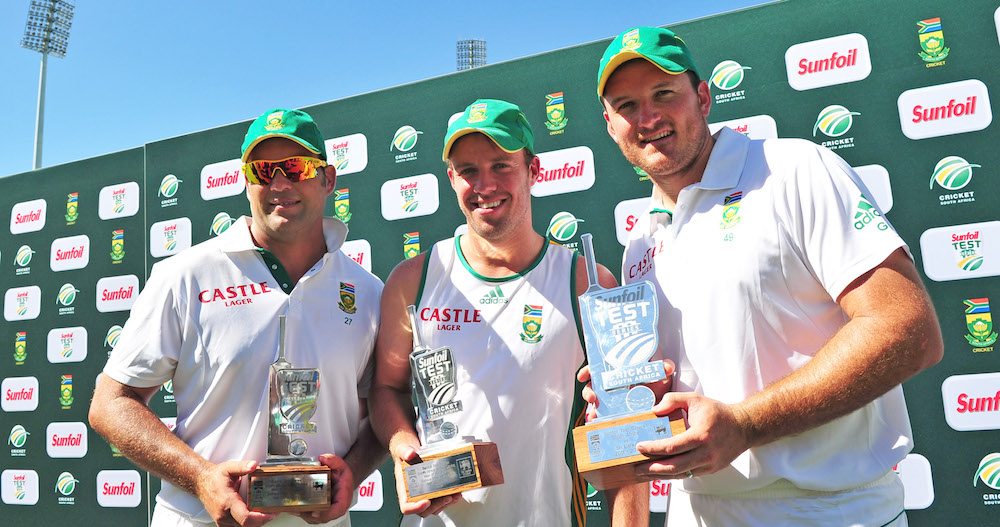
When South Africa play one team in alien conditions, its win percentage is at 75 percent (51 of 68 bilateral series). When South Africa play multiple teams in alien conditions, its win percentage drops to 40 percent (4 out 10 tri-series; excluding ICC tournaments).
These statistics are evidence of the fact that South Africa struggle to adapt to the challenges that multiple unknowns present, which this article argues, is a product of a structured approach to cricket. South Africa are not alone.
England, post-2009, enjoyed the fruits of a structured and data-driven approach to Test cricket under Andrew Strauss and Andy Flower, winning consistently against top-quality opposition such as Australia, South Africa, and India. Just like South Africa, this structured approach was detrimental to their performances in limited-overs cricket, as their record between 2009 and 2015 would suggest.
South African-born English great, Kevin Pietersen, often rebelled against the structure allegedly imposed on the team during Andy Flower’s coaching tenure.
Pietersen’s strained relationship with Flower has been well-documented in the media, with Pietersen asserting that “cricket is a team game played by eleven individuals,” and each team member should be treated individually. Batsmen like Herschelle Gibbs and Kevin Pietersen appear to struggle when their natural inclinations to dominate bowling attacks are suppressed by the overarching team plan to play “conservatively.”
Interestingly, both Gibbs and Pietersen benefitted enormously from Duncan Fletcher’s coaching and mentorship during his time as coach of Western Province and England, respectively. Gibbs writes in his book, “Fletchie has always told me to ‘go out and just play. I don’t care what the situation is; you just play.’”
Similarly, Pietersen has often spoken fondly of Fletcher’s influence in his early years as an England cricketer, where he was encouraged to express himself and intimidate oppositions.
The broader question for South African cricket is – is the structured approach to cricket referenced in this article embedded in players at a young age?
Surely, at the international level, coaches cannot “impose” a brand of cricket on veterans if they don’t agree?!
If cricketers are taught to play the game in a structured fashion in their early years, they should also be encouraged to develop their individual game plans and be empowered to adapt to challenging conditions in their own way.
For instance, on India’s tour of South Africa in 2001, Sachin Tendulkar made a brilliant 155 in the first Test match at Bloemfontein against a potent South African bowling lineup comprising Shaun Pollock, Makhaya Ntini, Nantie Hayward, and Jacques Kallis.
With India in deep trouble at 68-4, Tendulkar was faced with a barrage of short-pitched bowling from Makhaya Ntini. Aware that he was being induced to play the pull shot, Tendulkar employed the Upper Cut to take advantage of the vacant ‘Third Man’ region.
In the pre-T20 era, the Upper Cut was a high-risk shot, and Tendulkar admitted to not having practised the shot in the nets before attempting it in the middle.
This is one of many instances of Tendulkar making an independent assessment of an alternative scoring option and finding his way to adapt, which helped him succeed in all formats of the game.
How often have we seen South African batsmen improvise similarly in high-pressure situations?
I pose this question because Indian cricketers are judged largely on their performances in Australia, South Africa, England, and New Zealand. The pressure of performance tends to be significantly higher on them when they play overseas. Therefore, had the Upper Cut gone wrong, Tendulkar would have been severely criticised in the media.
As a keen viewer of South African cricket, it often looks like there is an emphasis on at least “not losing, if not winning,” which explains their success in Test cricket, but it also accounts for their lack of success in limited-overs cricket, and especially, ICC tournaments. It is difficult to tell whether the Proteas' approach stems from a fear of failure. Herschelle Gibbs certainly believes so.
To what can we attribute the fear of failure?
Maybe, it is the pressure of the legacy of the apartheid era.
History, politics, and sport have always been intertwined. Dr Matthew Brown, from the University of Bristol, recently said, “sport is geopolitical.” The history and politics of South Africa have shaped the way cricket has been and is currently played across the country.
Cricket, given its numerous equipment requirements, is expensive by design. With the physical, social, and economic segregation of coloured and black African communities in the apartheid era, cricket became a “white man’s game.”
After twenty-two years away from international cricket, South Africa was finally readmitted in 1991. Growing up in a period in which South Africa was banned from international cricket, and witnessing several key players such as Graeme Pollock and Barry Richards miss out on opportunities to showcase their talent on the international stage, must have played on the minds of the players who represented the Proteas in the years following their readmission.

The “fear of failure” Herschelle Gibbs often talks about in his book, in my view, stems from the incredible value the Proteas might have always placed on the opportunity to play international cricket. Allan Donald was 25-years-old when South Africa was readmitted to international cricket.
Jacques Kallis, Mark Boucher, and Herschelle Gibbs were 15. That is a considerable amount of time for players to comprehensively understand what it means to represent the national team in an arena that was inaccessible to previous generations of supremely talented cricketers.
The privilege of representing the Proteas probably came with a pressure that players might have struggled to combat.
If the influence of history on South Africa’s performances in World Cups appears to be far-fetched, I refer readers to India and Pakistan’s cricket rivalry.
A bloody partition, multiple wars, and ongoing hostility have had a spillover effect on cricket. Former Indian cricketer, Navjot Singh Sidhu, said that Indian fans once told him, “whether you live or die, you can’t lose to Pakistan.”
Similarly, conversations about the iconic 2003 World Cup encounter between India and Pakistan at Centurion began a year before the game was played.
A particularly striking memory is that of Indian Prime Minister, Manmohan Singh, Pakistani Prime Minister, Yusuf Raza Gilani, and Pakistani President, Asif Ali Zardari, watching the India vs Pakistan Semi-Final at Mohali in 2011.
It was an attempt at improving relations between the two countries through “Cricket Diplomacy.” It was later revealed that Indian players struggled to eat, and often vomited, throughout the tournament, which was staged in India, Bangladesh, and Sri Lanka, on account of the pressure resulting from the towering expectations on the Indian team to win a World Cup on home soil.
While we’re analysing the impact of the apartheid era on players, it is worth asking coaches, who might have been at their peaks during South Africa’s isolation from international cricket, if they have talked to their players about the influence of the politics of apartheid on their careers.
Ray Jennings, who went on to coach South Africa, began his career when South Africa was isolated from world cricket. By the time South Africa was readmitted twenty-two years later, selectors were more inclined to select younger talent.
Similarly, Corrie van Zyl’s first-class career took off in the middle of the apartheid era, and by the time he had an opportunity at the international level, he was in his 30s. Jennings and van Zyl are high-profile names in the South African coaching circuit.
There must be many coaches at the school, provincial, and franchise levels whose professional careers as players suffered because of South Africa’s two decades away from international cricket.
The conversation on South Africa’s ICC tournament performances typically revolves around the players, big match temperament, and the pressure of knockouts.
Perhaps, it is time for the cricketing establishment in South Africa to reflect on the impact of the coaching that players receive in their formative years, and whether the experience of losing out on a professional career in cricket in the apartheid era has bearing on how coaches train their players.
South Africa has always possessed the pedigree required to win ICC tournaments. That they have not been able to win has left cricket lovers perplexed, but we can be sure that they will cross the line at some point.
In the meantime, stakeholders in South African cricket, including fans, should strive to spread the love of the game across the country in the hope that a unified cricket-loving public will inspire the national team to bring home that coveted trophy one day.
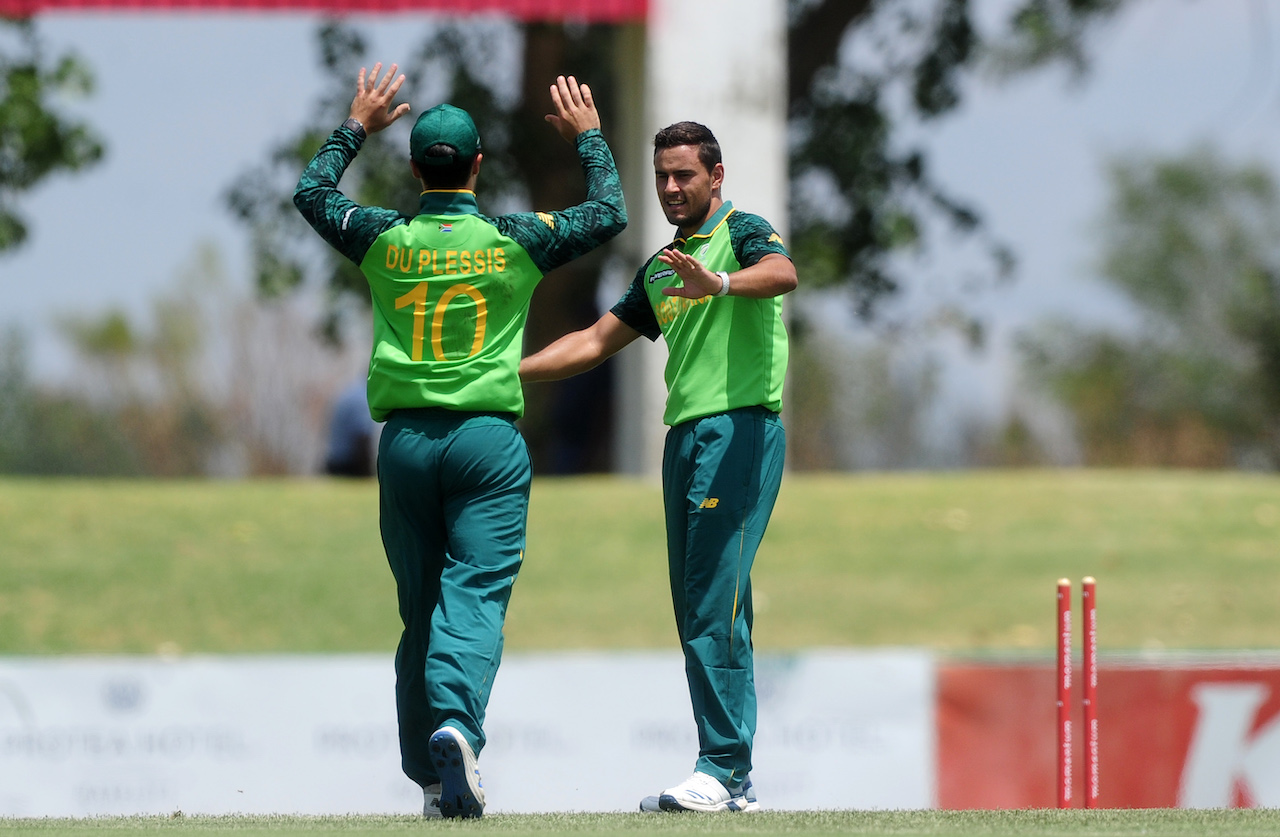
Off the Field: Beyers Swanepoel
By Nabeelah Fakier
When did you first know this is what you wanted to do and at what age did you start playing cricket?
From a young age, every cricket player started to hit balls, but everyone develops their skills at a different age. My love for the game started from the age of 10 because I was selected for my first Provincial cricket tournament for Gauteng U10.


What’s your favourite thing to do in your downtime, when you’re not playing?
Being a professional cricket player you are always busy, so when I have downtime I tend to spend time with friends and family - And play a round or two of golf.
You recently got married, how did you meet your wife and how is it being a newlywed?
Everyone said that the year 2020 is a mess, but luckily for me, I got to marry the woman of my dreams! We met in 2018 when I was still Contracted at Free State, at a place called “Staffy”.
We had a few coffee dates, and after that, I decided that I need to make it official, so she became my Girlfriend. We dated for a year and 9 months before we got engaged, and now we are married!!
Married life is the best, everything you have ever been waiting for is there every day.
Do you consider yourself a bowling or a batting all-rounder?
I honestly love doing both so much, but if I must say, I’m a proper all-rounder who can do both, when needed. I don’t want to label myself as something, but a good all-rounder will be the one!
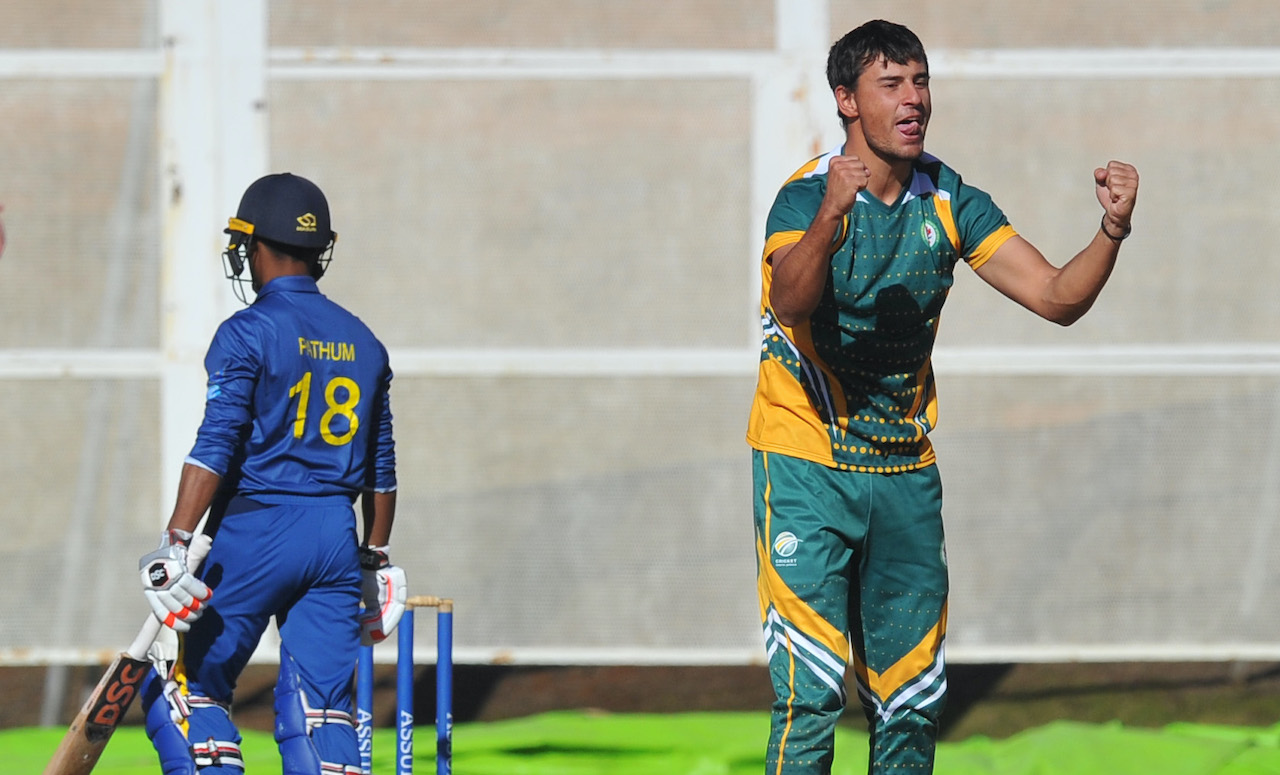
What did you learn from playing in the Tri-Series for University Sports South Africa against Sri-Lanka and SA Emerging?
I had the privilege to work with some quality coaches in that month and spend some quality time with the Sri-Lanka bowling coach, Chaminda Vaas. We talked about my bowling and where I can improve.
Who are some of the toughest players you’ve faced who are currently in the franchise scene?
The toughest players who I have faced must be the game against the England side in Paarl. Chris Jordon and Chris Woakes were tough!
But in SA it must have been Beuran Hendricks from the Lions when I made my Debut for the VKB Knights.
If you could be any famous person for a day, who would you be?
It would be Tiger Woods because golf is my second love after cricket!
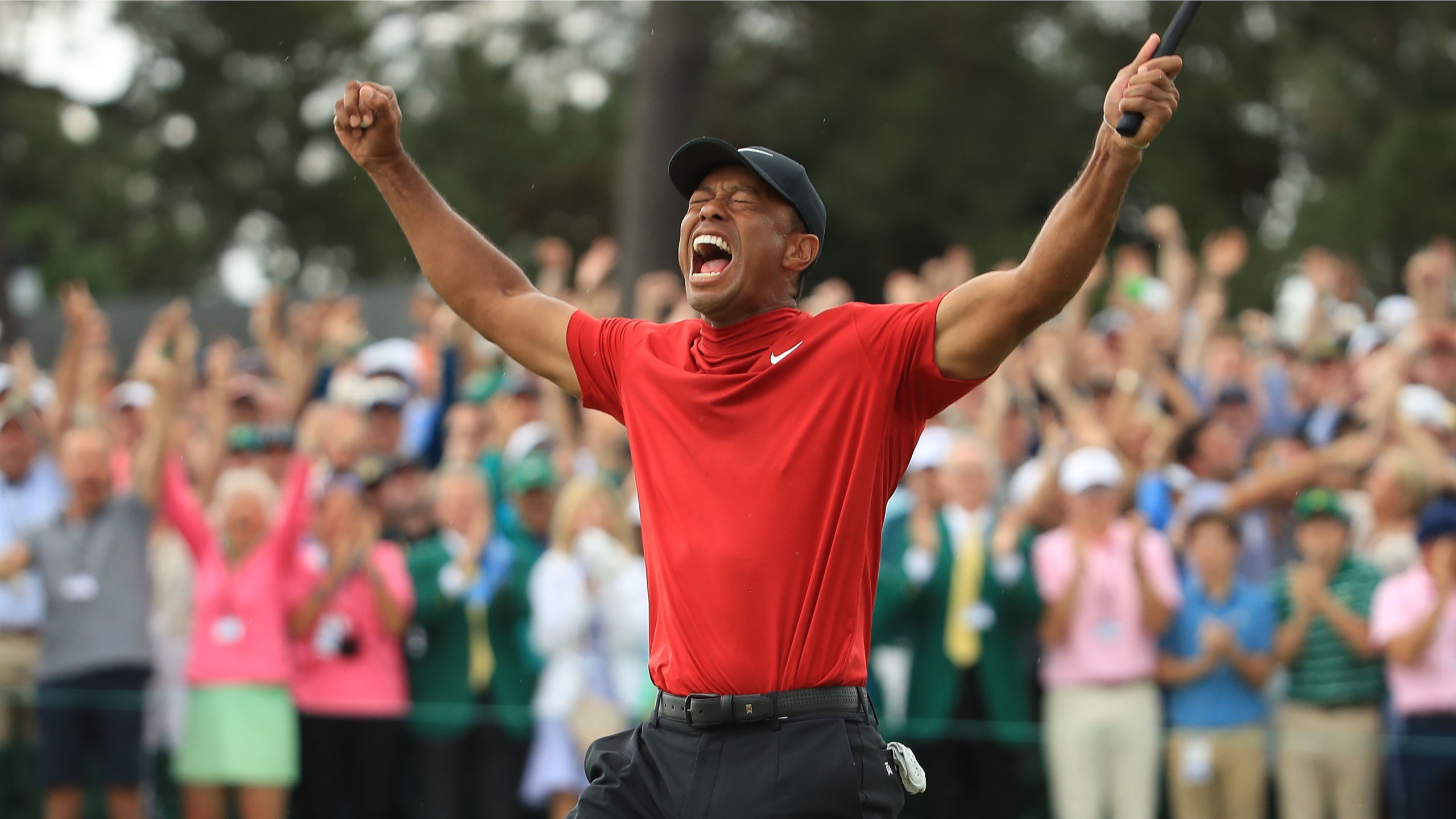
What’s your favourite destination in SA?
Cape Town is definitely my favourite destination.
When will you be joining Penzance? And what are you looking forward to regarding your move?
I will be joining Penzance in 2021. I’m very excited to go over for the first time to the club and even more excited than this year, as my wife will be joining me! I just want to do my part for the team and contribute in every game that I will play.
What series are you currently watching?
I’m actually not a series guy, but I do love a comedy movie.
Who is your role model?
My role model would be AB de Villiers
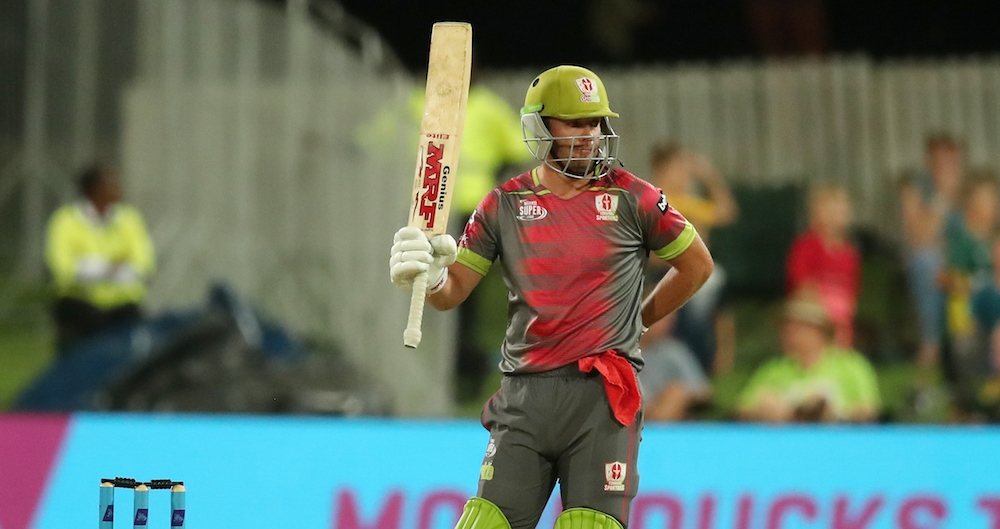
What are your hobbies?
I love to play golf and braai.
What are your goals for yourself in your cricket career?
My biggest goal for my cricket career is to make the best out of the talent that I have and to put on the Green and Gold one day!
Which Australian and Englishman’s wickets would you most like to bag?
I would love the wicket of Steven Smith, I’ve already got a few English wickets in the bag, but Joe Root would be nice.
What would you say is the most memorable game of your career?
It would be my maiden first-class 100 against KZN Coastal on my home ground.
You played a first-class game for the Knights, how far do you think you are from being a regular?
It was one of my goals in my career to play franchise cricket. I feel I’m not far away from being a regular player but first I need to be selected in the team to play.
Which other sports do you enjoy watching?
I love to watch a Rugby game on a Saturday with a braai and then obviously golf.

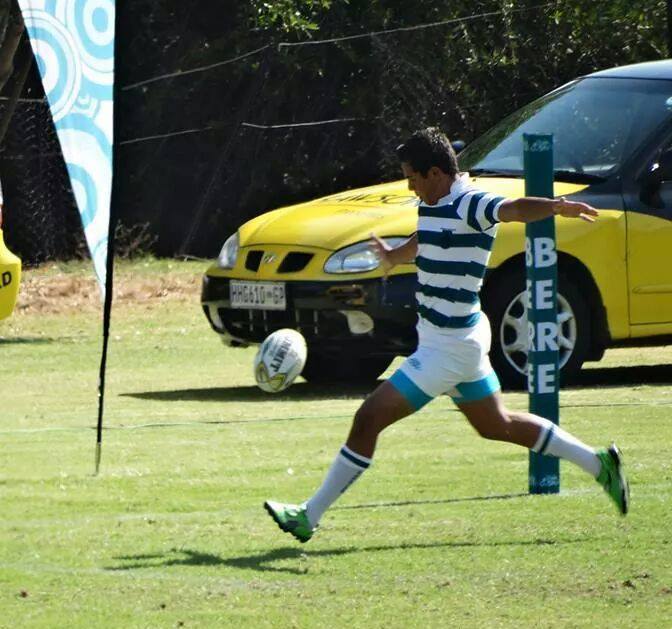
What are some of your guilty pleasures?
Way too much sushi!
Which coach would you love to have the opportunity to work with?
I would love to work with Ashwell Prince from the Cape Cobras!
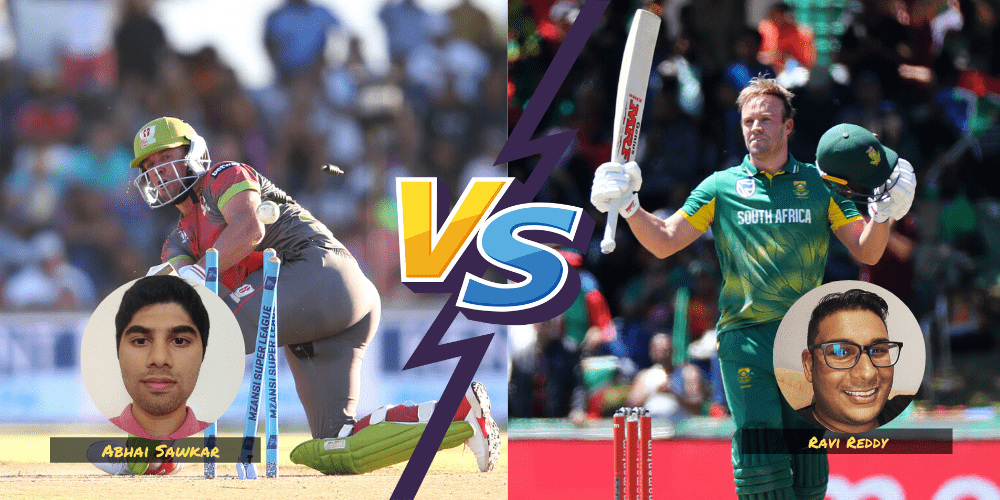
THE GREAT DEBATE: SHOULD AB DE VILLIERS RETURN?
Abhai Sawkar and Ravi Reddy debate whether AB de Villiers should be allowed to return for the Proteas’ T20 World Cup campaign.
ABHAI'S VIEW
There’s no doubt it was quite a poignant moment when one of South Africa’s most versatile and skilful batsman, AB de Villiers, abruptly ended his international career in May 2018.
I’ve been a fan of his versatility and the brand of cricket he’s played over the years. He didn’t take part in any subsequent series for the Proteas. Last year’s World Cup campaign was largely forgettable and it was evident that his game-changing ability was dearly missed.
However, in Early 2020, De Villiers expressed his interest to re-enter the international scene and potentially vie for a spot in the upcoming T20 World Cup squad.
Going back to the 2019 World Cup, every member of that squad had taken part in at least one ODI series in the past 18 months leading up to the tournament. Should De Villiers announce his availability for the T20 World Cup in India, he’ll have to feature in at least one T20I series beforehand.
If I were to assess the recent T20I series', despite the fact that things didn’t go so well against Australia and England, the Proteas have added more options to the batting card.
Temba Bavuma was initially pigeonholed as a longer-format specialist, but he’s scored 249 runs in 8 T20Is, striking at just over 130.
Heinrich Klaasen proved himself before the Pandemic. We have seen Wihan Lubbe and Marco Marais, for example perform well in the MSL, which we hope will see them given a chance in international cricket.
While Bavuma and Klaasen are two examples of success, it’s also to be noted that newcomers should be given ample chances to step up to the plate.
The experienced middle-order finisher Pite van Biljon debuted against Australia, and even though he struggled to put together a strong performance, we’ve seen his devastating impact in the Mzansi Super League.
Considering the fact that the more recent international debutants in the shorter formats have done well in the MSL, there is a sizeable talent pool from which future Proteas can be chosen.
Bouncing back from a rough period has often been a forte for South Africa, and at this point in time, providing important top-level exposure to those raring to push for higher honours will be beneficial in the long term.
While I’m not downplaying the accolades and positive impression that AB de Villiers has left on South African cricket, there come frequent occasions when tough decisions have to be made, and this happens to be one of them.
RAVI'S VIEW
We’ve all been there. Remember when you saw your “ex” for the first time after a couple of years? Feels great, doesn’t it?
While the knee jerk reaction will be to remember the bad times instead of the good, I welcome you to take a harmonious walk down memory lane. Whilst walking, I want you to remember all the fond memories involving Mr 360 himself, AB de Villiers.
A reminder, a young AB de Villiers made his Test debut all the way back in 2004, sporting a “point-break” hairstyle that the late Patrick Swayze will be proud of.
Success and fortune soon followed AB, resulting in a prosperous career across all 3 formats of the game.
Most notably, AB persevered in T20 cricket and is undoubtedly one of the most popular foreign players in the Indian Premier League. Not convinced? Here are the numbers (T20):
T20I – 78 matches, 1,672 runs @ 26, Strike Rate: 135.2, Highest score: 79 n/o
IPL – 169 matches, 4,849 runs @ 40.40, Strike Rate: 151.91, Highest Score: 133 n/o
With the T20 World Cup taking place in October 2021 in India, it makes sense to choose an experienced team. Who better than selecting AB himself.
The batting order in recent times under-delivered and reared its ugly veneer at the 2019 World Cup in England.
There were multiple concerns with AB destroying the team culture, should he return to the national side.
I believe that AB won’t be disruptive, considering Quinton de Kock has just taken over from Faf du Plessis as the team captain.
Undoubtedly AB will support QDK as best as possible and will certainly combine forces to form formidable, match-winning partnerships.
I think AB should be let back in so that the Proteas can clinch their inaugural T20 World Cup.
Disclaimer: Cricket Fanatics Magazine encourages freedom of speech and the expression of diverse views from fans. The views of this article published on cricketfanaticsmag.com are therefore the writer’s own and do not necessarily represent the views of the Cricket Fanatics Magazine team.
Victor Mpitsang: I've been waiting for this call
How far are the Proteas from finding their best XI? | With Monde Zondeki
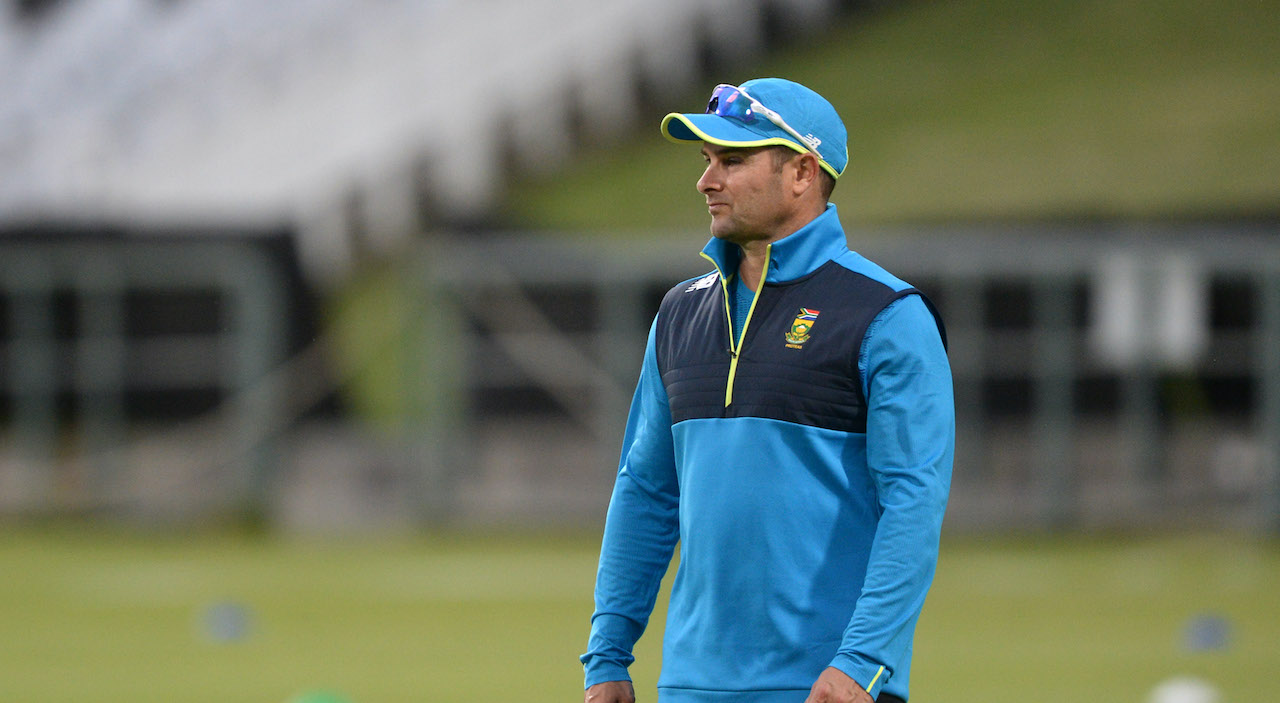
“GETTING TESTED LIKE THIS HAS EXPOSED OUR WEAKNESSES” – MARK BOUCHER
By Abhai Sawkar
Following a convincing T20I series defeat to England in November, Proteas head coach Mark Boucher astutely analysed how South Africa went and laid out the plans for what’s to come next.
First of all, amid the disappointment, Boucher lauded the debutant of the series, left-arm spinning allrounder George Linde, for how well he stepped up to the international stage.
“Yes, there are positives. First, George Linde went really nicely and then Faf and Rassie had a successful series with the bat. We were playing against a very strong side and our bowlers were put to the test. Then again, it’s difficult to look at the positives whenever we lose 3-0.”
While it was largely a series to forget, it’s to be noted that South Africa didn’t have an international series in their itinerary since March 2020.
As much as the lack of game time in the months prior to this defeat might be a contributing factor to the downturn in form, Boucher insisted that it isn’t a reason to justify the performances, but rather to embrace a fresh new start and ascendancy back to greater strength.
“There’s a bit of rustiness – we didn’t have an ideal preparation. A few of the warm-up games got cancelled. We did what we could with regards to training. But this isn’t any sort of excuse – we need to face the facts and the fact of the matter is that we lost all three games against a very strong side.
“We want to win, fans want us to win. It’s hard to apologise when you give it your level best, but then again England is well ahead of us at the moment. My message to the fans: we’ve done what we can and we’re putting in the hard yards to return to becoming a stronger force in world cricket.”
Another common motif in South Africa’s playing XI conundrum is the fact that the two incumbent allrounders were not able to take part in this series at all. Dwaine Pretorius left early due to an injury, and Andile Phehlukwayo was in isolation. .
ALSO READ: ENGLAND CRUISE TO 3-0 T20I SERIES WIN AGAINST SOUTH AFRICA
T20 cricket is often about balance and strategies. Considering the top six in each of the three games were specialist batsmen that didn’t really have a bowling option to offer, it was tough to fit all the pieces of the jigsaw puzzle accordingly. Also, Boucher added that over the course of this series, South Africa played the best possible XIs out of the available players.
“We didn’t have our allrounders due to various reasons. We didn’t have a sixth bowler. In T20s, one bowler normally goes for plenty and you need to have another option to cover for that. Plus we haven’t been experimenting – we’ve used the players we had.
“There were unfortunate circumstances that forced us to play combinations that weren’t so favourable but that’s what we had to do. Hopefully, we can have everyone ready for selection next time around.”
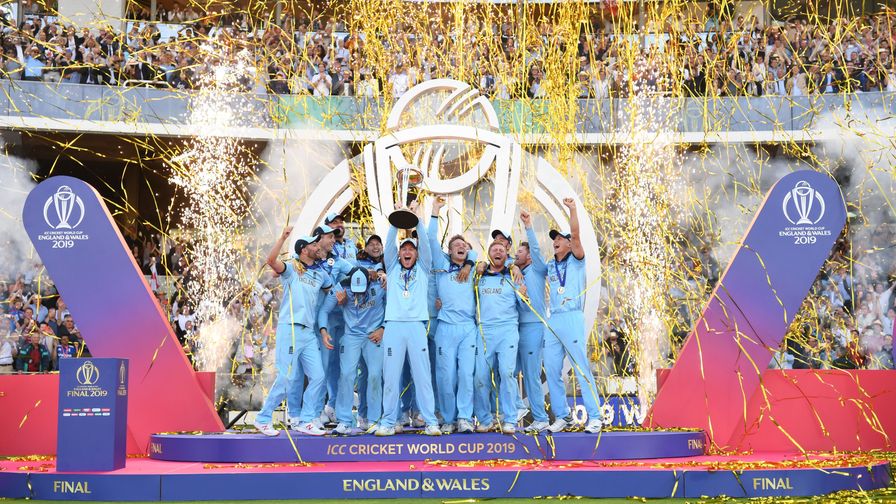
Keep The Faith Proteas Fans, Your Time Will Come
By Aaron Viles
It’s 7.35 pm on Sunday 14th July 2019.
England have just won the ICC Cricket World Cup by the "barest of margins" in one of the most extraordinary affairs in cricketing history.
Somewhere in the picturesque countryside of rural Warwickshire, a diehard Cricket Fanatic who had endured years of hurt at the hands of his beloved Three Lions is sprinting down his driveway with a Warwickshire flag waving in his arms, fluttering ever majestically in the refreshing evening breeze on the best day of his life to date.
Sounds almost poetic when I put it like that doesn’t it?
In order to fully understand the sheer magnitude of this moment to English cricket fans however you first have to transport yourself back four years in time to a much darker period in which no England fan, myself very much included, believed that our team would ever reach the knockout stages of an ICC World Cup let alone go on to win the tournament as a whole within the same decade.
It's the 13th February 2015, an ICC Cricket World Cup is right around the corner and a woefully out-of-form England team captained by Eoin Morgan are preparing for their tournament opener against co-hosts Australia at the mighty MCG.
Just 24 hours later, that same England team are left licking their wounds after an embarrassing 111-run annihilation at the hands of our oldest foe.
Oh well, these things happen in cricket I suppose, surely it can only get better from here?
Oh no mate, this nightmare has only just begun so strap yourself in, make yourself comfortable and prepare for a string of performances so disastrous that you may begin to question your very love for this game in a way you never thought imaginable.
In the next game, England were bowled out for 123 runs by co-hosts New Zealand in Wellington. Tim Southee takes 7/33. Brendon McCullum and the Blackcaps take just 12.2 overs to complete their run chase. English cricket takes another step towards the proverbial cricketing abyss.
Unsurprisingly our 2015 World Cup campaign never fully recovered from those two humiliations at the hands of the tournament hosts and by 9th March, our aspirations of World Cup glory came tumbling down once and for all at the hands of a Rubel Hossain yorker which sent the Three Lions packing with a group stage game to spare.
For the weeks that followed that fateful tournament, I can honestly say that I was rather embarrassed to call myself an English cricket fan.
The team lacked basic camaraderie, the brand of cricket that we played was antique and quite simply unfit for the fast-paced, dynamic nature of the modern game and there was an air of hopelessness within the English cricket community that I had never experienced up until that point.
We had hit rock bottom.
Things needed to change.
After the embarrassment of the failed 2015 World Cup campaign England had two options ahead of them; take the easy route and alter their style of play in order to mimic the successful approaches of other nations or alternatively take the harder route and completely transform the approach and perception of white-ball cricket in this country.
Fortunately for myself and English cricket fans across the globe, the ECB chose the latter and well, the rest was history.
From the ashes arose a phoenix the likes of which the cricketing world had arguably never seen.
A team full to the very brim with fight and character, a team with an unparalleled ability to rack up 400+ run totals with nonchalant ease and a team spearheaded by one of the nation’s finest ever white ball cricketers with a point to prove, Eoin Joseph Gerrard Morgan.
Morgan’s contribution to the revamp of English cricket during this period simply cannot be understated.
Along with the likes of Ed Smith, Andrew Strauss and Ashley Giles captain Morgan completely re-invigorated the English white-ball landscape, adopting a brand of fearless, exciting and entertaining cricket that would set the Three Lions aside from every other team on the international stage and win back the hearts of the legions of fans who had been so bitterly let down in 2015.
In addition to his contributions away from the pitch Morgan also happened to be the very personification of a natural-born leader on it and under his calm, assured leadership the national team jumped from 6th place in the 2015 ICC ODI rankings to 1st place in the 2018 rankings.
The wheels of revolution were now well and truly in motion.
Fast forward to 2019 and after 4 years of setting the ODI stage alight in various bilateral series across the world that revolution was complete.
England were crowned as the World Champions in front of a packed house at the very home of cricket itself and from the streets of Sheffield to the village greens of Ventnor an entire nation rejoiced as one.
The embarrassment of 2015 was finally behind us once and for all, suddenly the pain of the past seemed irrelevant.
The impossible finally became possible.
And this is where South African cricket comes into the picture.
In many ways, the current Proteas side bears some similarities to the England side of 2014/15 in terms of the identity crisis that the team appears to be suffering from and the apparent sense of hopelessness that looms over the heads of cricket lovers across the rainbow nation as the team struggles to overturn their poor recent form in the white-ball arena. But the most important thing for Proteas fans to maintain right now is their sense of belief.
When English cricket hit rock bottom in 2015, to be honest, I felt a similar sense of hopelessness but it was the unrequited love of the team that I had been supporting so fanatically since 2009 that kept me believing.
There were bumps in the road along the way don’t get me wrong, the 2016 World Cup Final immediately springs to mind in that regard and thanks to the legendary Ian Bishop I don’t think that I will ever forget the name ‘Carlos Brathwaite’ for the remainder of my days, but the core belief still remained even through this disappointment.
Granted Cricket South Africa hasn’t exactly been as proactive as the ECB in its’ approach to ODI or T20I cricket recently but the beauty of South African cricket is that there always appears to be an embarrassment of riches within the domestic talent pool from which the selectors can delve into and if these players are afforded the chance to prove themselves on the international stage with an extended run in the team. The long term benefits may be apparent for all to see in the coming years.
Talking of those players, the likes of Kyle Verreynne and Janneman Malan appear to be destined for greatness given their mightily impressive starts to their respective Proteas careers but they too will have to face their own adversities in the coming years and when those tough times arrive these guys will need the full support of their faithful fans in order to pick themselves back up again.
And that is one of the key lessons to learn from the English white-ball revolution.
Throughout the course of the many ups and downs of those 4 extraordinary years between 2015 and 2019, one thing remained consistent and that was the unwavering support of England fans who fully believed in the process taking place even if the team was going to face adversity along the way.
I am not suggesting for one second that you blindly support every single decision that South Africa makes over the course of the next 3/4 years but as fans, it is our responsibility to support our respective teams through both thick and thin and as long as Proteas fans can maintain that quiet sense of optimism I have absolutely no doubt that the team will one day repay that faith with ICC World Cup glory.
And when that day comes, I sincerely hope that Proteas fans across the rainbow nation can also experience the same sense of pure elation that we felt on that fateful Sunday evening at Lord’s.
Video Playlist
The Podcast Live Show:
ENGLAND SERIES PLAYLIST
Magazine info
Editorial Director
Khalid Mohidin
IT and Technical Director
Faizel Mohidin
Contributors
Abhai Sawkar
Aditya Mehta
Aaron Viles
Alasdair Fraser
Craig Stirton
Khalid Mohidin
Lubabalo Skhosana
Lucy Rees
Marc Jacobson
Mpho Moreki
Nabeelah Fakier
Nasri Alexander
Ongama Gcwabe
Ravi Reddy
Graphics
Khalid Mohidin (Cover and Graphics)
Mohammed Hoosain (logo)
Images
BackpagePix
Video Binge List:
On Lockdown Series
The Podcast Show
Legends with Ravi
Daily Show
